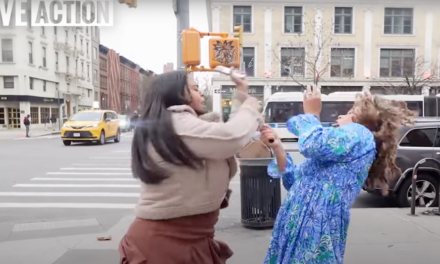The producers of the acclaimed news program ’60 Minutes’ have voiced their frustrations regarding the lawsuit filed by former President Donald Trump, describing it as a troubling action that casts a shadow over journalistic freedom. This lawsuit, which Trump has characterized as a necessary legal defense, has raised severe concerns among the ’60 Minutes’ team about the impact it may have on their journalistic integrity and responsibilities.
Trump’s legal action targets the program for its investigative reporting, which has historically held powerful figures accountable and informed the public on critical issues. The producers are grappling with the implications of such a lawsuit, fearing that the suit not only threatens their work but also sets a dangerous precedent for media accountability in the digital age.
In recent interviews, key producers from ’60 Minutes’ expressed their discontent with Trump’s legal claims, labeling them as baseless and accusing him of attempting to intimidate journalism with legal threats. This lawsuit is seen not merely as an isolated incident but as part of a broader attack on the press, echoing concerns voiced by numerous media personnel across the country. The producers are particularly concerned that this type of legal action could deter journalists from publishing truthful and essential stories for fear of retaliation.
Some producers spoke out about their apprehensions regarding what could happen if this lawsuit evolves further. There is a palpable anxiety that Paramount, the network’s parent company, may consider a settlement in an attempt to mitigate potential financial or reputational damages. Such a decision could pave the way for a compromise that undermines the journalistic principles that ’60 Minutes’ has stood for over the decades.
“This isn’t just about us; it’s about the future of journalism as a whole,” stated one producer. “If we start yielding to threats, what message does that send to those in power? We cannot be bullied into silence.”
The show has been a staple of American journalism since it first aired in 1968, celebrated for its rigorous investigative reports and in-depth interviews that often focus on controversial topics. If Trump were to secure a victory in this lawsuit, it could lead to an erosion of the freedom of the press, making it increasingly difficult for news organizations to investigate and report on public figures without fear of litigation.
Compounding the producers’ anxiety about a potential settlement is the financial aspect that Paramount faces. The entertainment industry is experiencing shifting dynamics, with costly legal battles looming large due to various high-profile lawsuits. A settlement may seem like a pragmatic decision to avoid ongoing litigation expenses, but it raises ethical questions regarding press freedom and journalistic independence.
Moreover, producers shared their concerns that accepting a settlement could create a chilling effect on other media outlets. Media entities may become more cautious or even begin to self-censor their reporting to avoid similar lawsuits. In a time where misinformation and media attacks are already rampant, surrendering to such pressures could have detrimental effects on public discourse and informed citizenship.
The producers of ’60 Minutes,’ as summarized by multiple reports, have stressed the importance of maintaining journalistic integrity no matter the obstacles presented by legal threats. The program’s mission remains steadfast: to inform the public, shine a light on the truth, and hold power accountable. The creative team recognizes that their contributions to investigative journalism are not merely about ratings, but about embodying the essence of democratic values and serving the public interest.
In addition to these concerns, many producers worry about the long-term implications of Trump’s legal endeavors extending beyond ’60 Minutes.’ This case may embolden others in positions of power to wield the legal system against news organizations, prompting a worrying trend where threats become normalized. With recent data suggesting that more journalists are facing intimidation tactics, this lawsuit exemplifies a trend that is creating an increasingly treacherous environment for reporters.
While some pundits argue that Trump’s legal actions are simply part of a broader political strategy to foster his base, media professionals see it as indicative of a dangerous culture. Consequently, producers from ’60 Minutes’ are rallying together – not only for their show but also for their fellow journalists throughout the country. They believe collectively addressing these threats is vital for their work and will ensure they can continue delivering the essential investigative work for which they are known.
The implications of this lawsuit extend beyond just the current media landscape. It raises fundamental questions about the role of journalists in society and the importance of protecting their rights. The producers of ’60 Minutes’ know that if they do not stand firm now, future generations of reporters may find it increasingly hard to operate with the same freedom and independence.
As the situation unfolds, the producers plan to maintain their focus on delivering critical news stories while actively engaging in discussions about media freedom and protecting journalistic rights. The collective standing against Trump’s lawsuit reflects a broader commitment to uphold democratic values against those who threaten them.
In summary, the producers and entire team behind ’60 Minutes’ are increasingly concerned that Trump’s lawsuit is emblematic of a systematic attempt to undermine press freedoms. The possibility of a settlement with Paramount adds further tensions and ethical dilemmas, underscoring the critical need for solidarity among journalists. As the news media faces unprecedented challenges, maintaining the fight for truth and integrity remains paramount now more than ever.































